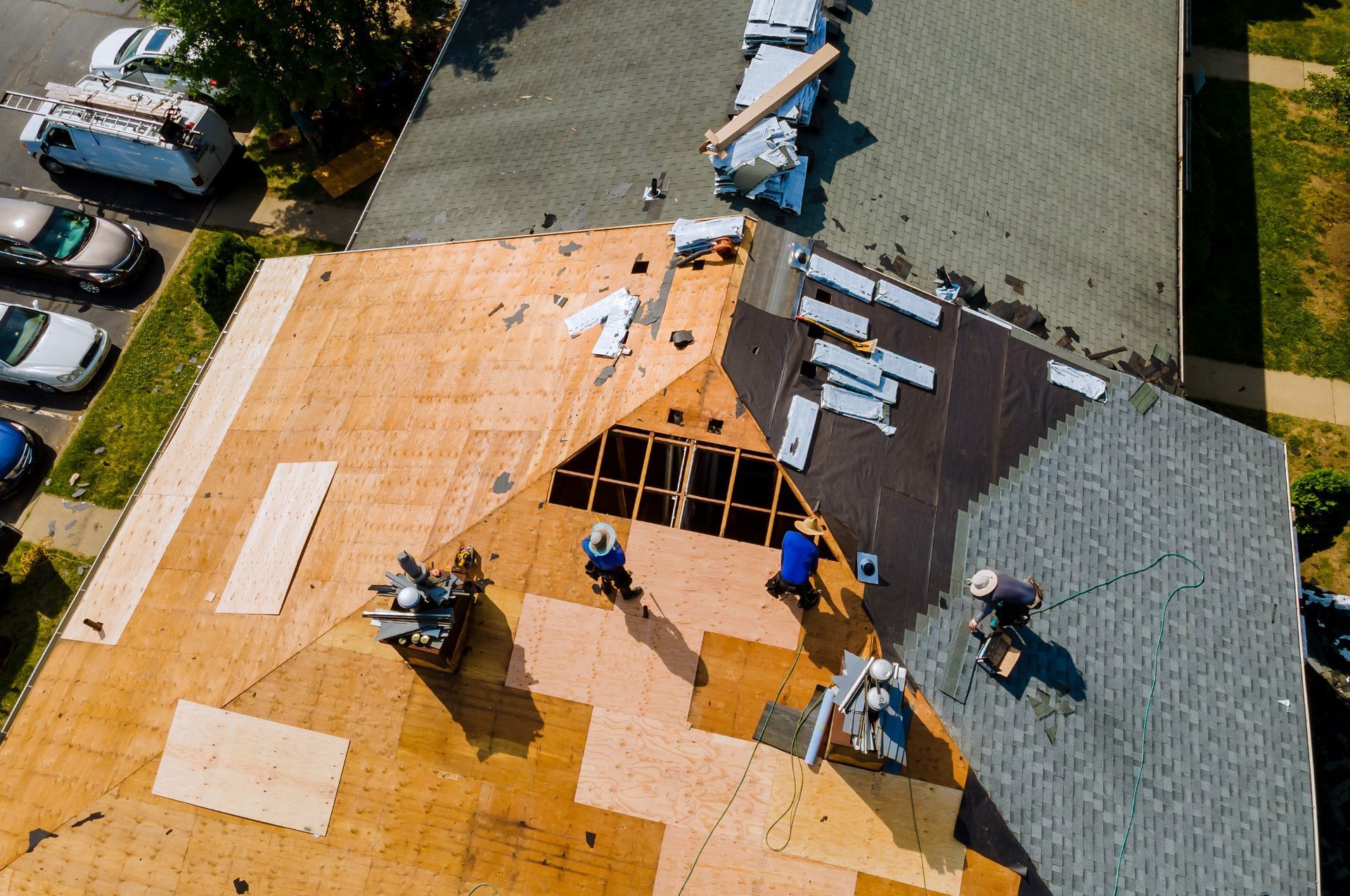
Top 3 Recommended Policies
When it comes to roofing contractors in Connecticut, understanding the intricacies of insurance is crucial. Not only does it protect the contractor, but it also safeguards clients from potential liabilities. This article delves into the essential aspects of roofing contractor insurance in Connecticut, providing a comprehensive guide for both contractors and clients.
Understanding Roofing Contractor Insurance
Roofing contractor insurance is a specialized form of insurance designed to protect contractors from various risks associated with their work. This type of insurance typically includes several different coverages, each serving a unique purpose. Understanding these coverages is vital for contractors to ensure they are adequately protected.
Types of Insurance Coverage
There are several key types of insurance coverage that roofing contractors should consider. Each type addresses specific risks that may arise during the course of a roofing project.
- General Liability Insurance: This is perhaps the most critical type of insurance for roofing contractors. It protects against claims of bodily injury or property damage that may occur as a result of the contractor's work.
- Workers' Compensation Insurance: This coverage is essential for contractors with employees. It provides benefits to workers who are injured on the job, covering medical expenses and lost wages.
- Commercial Auto Insurance: If a contractor uses vehicles for business purposes, this insurance covers damages and liabilities that may arise from accidents involving those vehicles.
Why Insurance is Essential for Roofing Contractors
Having the right insurance is not just a legal requirement; it is also a smart business decision. Insurance provides peace of mind, allowing contractors to focus on their work without the constant worry of potential liabilities.
Moreover, clients often require proof of insurance before hiring a contractor. This requirement not only protects the client but also elevates the contractor's credibility in the eyes of prospective customers.
In addition to the basic coverages, roofing contractors may also want to explore additional options such as umbrella insurance, which provides an extra layer of liability protection beyond the limits of standard policies. This is particularly important for contractors who take on larger projects or work in high-risk areas, as it can safeguard against unforeseen incidents that could lead to significant financial loss. Furthermore, specialized insurance products like equipment and tools coverage can protect valuable machinery and tools from theft or damage, ensuring that a contractor's operations can continue smoothly without costly interruptions.
Understanding the nuances of each type of coverage can also help contractors tailor their insurance policies to fit their specific needs. For instance, contractors who frequently work on residential properties might prioritize different coverages compared to those who focus on commercial roofing. By assessing the unique risks associated with their particular niche, contractors can make informed decisions that not only comply with legal requirements but also enhance their overall business resilience.
Legal Requirements for Roofing Contractors in Connecticut
Connecticut has specific legal requirements regarding insurance for roofing contractors. Understanding these regulations is crucial for compliance and to avoid potential fines or legal issues.
State Licensing Requirements
In Connecticut, roofing contractors must be licensed to operate legally. The state requires contractors to obtain a Home Improvement Contractor license, which entails meeting specific criteria, including proof of insurance.
Contractors must provide evidence of general liability insurance, which must meet the minimum coverage limits set by the state. Additionally, workers' compensation insurance is mandatory for contractors with employees.
Minimum Insurance Coverage Requirements
Connecticut sets minimum insurance coverage requirements for roofing contractors. These requirements are designed to ensure that contractors can cover potential liabilities without putting their clients at risk.
- General Liability Insurance: Contractors must carry a minimum of $300,000 in general liability insurance.
- Workers' Compensation Insurance: This coverage must meet the state’s minimum requirements, which can vary based on the number of employees.
In addition to the basic insurance requirements, roofing contractors in Connecticut are also encouraged to consider additional coverage options to further protect their business and clients. For instance, umbrella insurance can provide extra liability coverage beyond the standard limits, which can be particularly beneficial in the event of a significant accident or property damage claim. Furthermore, contractors may want to explore professional liability insurance, which can safeguard against claims of negligence or failure to deliver services as promised.
Moreover, staying informed about changes in state regulations is essential for roofing contractors. The Connecticut Department of Consumer Protection periodically updates licensing requirements and insurance mandates, and contractors should regularly check for any new developments. This proactive approach not only helps in maintaining compliance but also enhances the contractor's reputation in the industry, as clients often prefer to work with professionals who demonstrate a commitment to adhering to legal standards and best practices.

Choosing the Right Insurance Provider
Finding the right insurance provider is a critical step for roofing contractors. Not all insurance companies offer the same coverage options or levels of service, so it is important to do thorough research.
Factors to Consider
When selecting an insurance provider, several factors should be taken into account:
- Reputation: Look for an insurance company with a solid reputation in the industry. Reviews and testimonials from other contractors can provide valuable insights.
- Coverage Options: Ensure that the provider offers comprehensive coverage options tailored to the specific needs of roofing contractors.
- Customer Service: A responsive and helpful customer service team can make a significant difference, especially when filing claims or seeking assistance.
Comparing Quotes
Once potential providers have been identified, obtaining quotes from multiple companies is advisable. Comparing quotes can help contractors find the best coverage at a competitive price.
It is essential to ensure that the quotes are for similar coverage levels to make an accurate comparison. Additionally, contractors should inquire about any discounts that may apply, such as those for bundling multiple policies.
Another important aspect to consider when comparing quotes is the deductible amounts. A lower premium might come with a higher deductible, which could lead to unexpected out-of-pocket expenses in the event of a claim. Contractors should carefully evaluate their financial situation and risk tolerance to choose a deductible that aligns with their business model. Furthermore, understanding the claims process of each provider can also be beneficial; a company with a streamlined and efficient claims process can save valuable time and resources during stressful situations.
Lastly, it can be advantageous to seek out insurance providers that specialize in construction or roofing industries specifically. These companies often have a deeper understanding of the unique risks and challenges faced by roofing contractors, allowing them to offer more tailored advice and coverage options. Engaging with industry associations or networks can also yield recommendations for reputable providers that have a history of serving contractors effectively.
Cost of Roofing Contractor Insurance in Connecticut
The cost of insurance for roofing contractors can vary significantly based on several factors. Understanding these factors can help contractors budget for their insurance needs effectively.
Factors Affecting Insurance Costs
Several key factors influence the cost of roofing contractor insurance:
- Business Size: Larger businesses with more employees typically face higher insurance costs due to the increased risk.
- Claims History: Contractors with a history of claims may face higher premiums, as they are seen as higher risk by insurance providers.
- Coverage Limits: Higher coverage limits generally result in higher premiums. Contractors should assess their needs carefully to find a balance between adequate coverage and affordability.
Average Insurance Costs
While costs can vary widely, roofing contractors in Connecticut can expect to pay anywhere from $1,000 to $3,000 annually for general liability insurance. Workers' compensation insurance costs will depend on the number of employees and the nature of the work performed.
It is advisable for contractors to budget for these costs as part of their overall business expenses. Understanding the financial implications of insurance can help in making informed decisions.
Additionally, the type of projects a contractor typically undertakes can also impact insurance costs. For instance, contractors who work on residential roofs may face different risks compared to those who handle commercial roofing projects, which often involve larger structures and more complex safety considerations. As a result, insurance providers may adjust their rates based on the specific risks associated with each type of project.
Furthermore, the location within Connecticut can also play a role in determining insurance costs. Areas prone to severe weather conditions, such as heavy snowfall or hurricanes, may lead to higher premiums due to the increased likelihood of property damage claims. Contractors should be aware of these regional factors and consider them when seeking insurance quotes, as they can significantly affect overall costs and coverage options available to them.
Common Insurance Claims in the Roofing Industry
Understanding the common types of insurance claims in the roofing industry can help contractors take proactive measures to mitigate risks and avoid potential issues.
Types of Claims
There are several common types of claims that roofing contractors may encounter:
- Bodily Injury Claims: These claims can arise if a worker or a third party is injured on the job site. Proper safety measures and training can help minimize these risks.
- Property Damage Claims: Accidental damage to a client's property during a roofing project can lead to claims. Contractors should ensure they have adequate coverage for such incidents.
- Contractor Errors: Mistakes made during the roofing process can lead to costly repairs and claims. Having insurance that covers errors and omissions can provide additional protection.
Preventing Insurance Claims
While insurance is essential, taking proactive steps to prevent claims is equally important. Implementing safety protocols, providing proper training for employees, and maintaining open communication with clients can significantly reduce the likelihood of claims.
Regular inspections and maintenance of equipment can also help prevent accidents and damage, ultimately leading to fewer claims and lower insurance costs.
Additionally, documenting every phase of the roofing project can serve as a protective measure. By keeping detailed records of communications, contracts, and progress photos, contractors can provide evidence in case a dispute arises. This documentation can be invaluable when defending against claims or clarifying misunderstandings with clients.
Furthermore, investing in comprehensive training programs that emphasize safety and quality control can foster a culture of accountability among workers. When employees are well-informed about best practices and the potential risks associated with roofing work, they are more likely to adhere to safety protocols and take pride in their craftsmanship, which can lead to fewer errors and higher customer satisfaction.

Conclusion
Roofing contractor insurance is a vital aspect of operating a successful roofing business in Connecticut. Understanding the various types of coverage, legal requirements, and factors affecting insurance costs can empower contractors to make informed decisions.
By choosing the right insurance provider and implementing risk management strategies, roofing contractors can protect themselves, their employees, and their clients. Ultimately, having comprehensive insurance coverage not only enhances a contractor's credibility but also contributes to the overall success and sustainability of their business.
In the ever-evolving landscape of the roofing industry, staying informed about insurance requirements and best practices is essential. By prioritizing insurance and risk management, roofing contractors can focus on what they do best—providing quality roofing services to their clients.
Contact Us
Phone
Locations
Connecticut Location
703 Hebron Ave., 3rd Floor, Glastonbury, CT 06033
North Carolina Location
436 East 36th St., Charlotte, NC 28205


